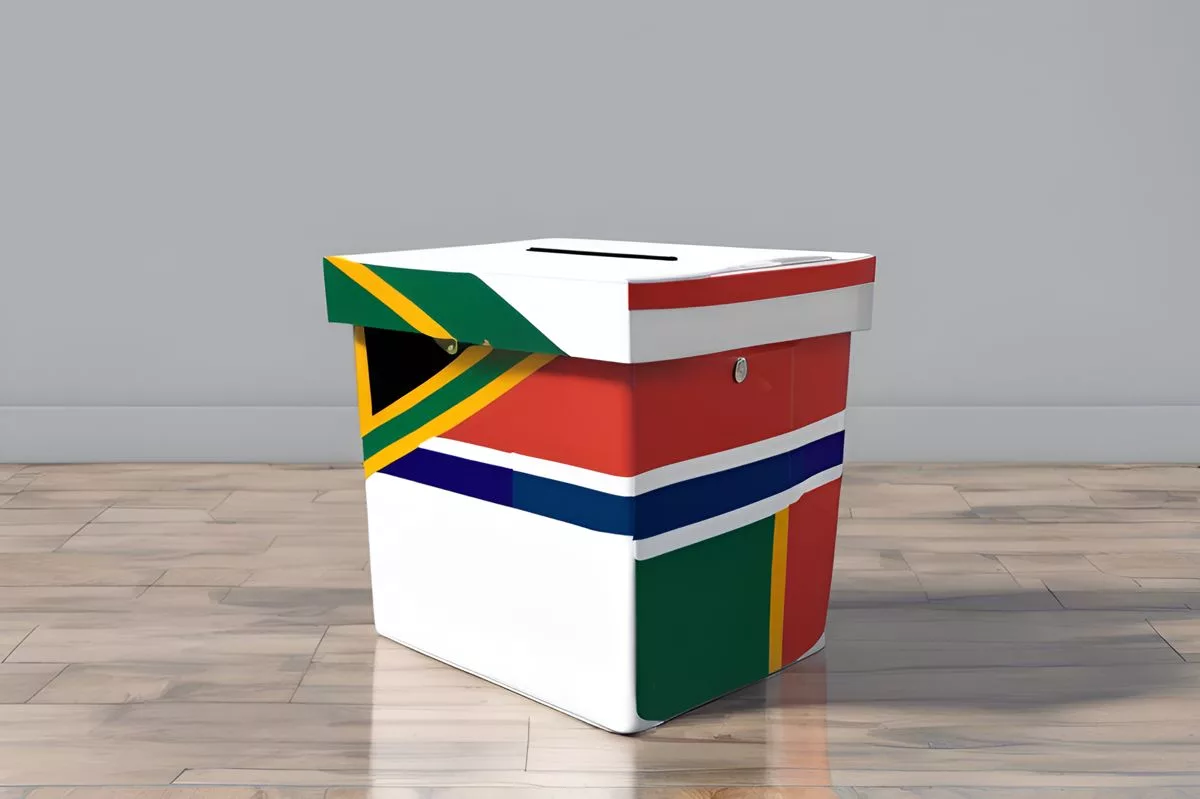South Africa celebrated a democratic milestone with the triumph of President Cyril Ramaphosa and the Independent Electoral Commission’s (IEC) 2024 election results. The electoral process showcased a free, peaceful, and fair expression of the people’s will, with millions of South Africans participating from all corners of the country. The election results reflected the resilience and strength of South Africa’s democracy, and the shared mandate is to construct an inclusive, united, and prosperous nation, prioritizing the people of South Africa.
The Electoral Process – A Testament to a Flourishing Democracy
South Africa’s thriving democracy was exhibited through the electoral process which was characterized by a free, peaceful, and fair expression of the people’s will. The Independent Electoral Commission (IEC) outdid itself, demonstrating remarkable professionalism and integrity, despite confronting numerous challenges. The election witnessed a fervor-filled participation from millions of South Africans – from the bustling urban centers to serene villages, from vast farmlands to overseas territories.
As a sense of triumphant serenity enveloped South Africa with the announcement of the 2024 National and Provincial election results, it marked a victory not just for a specific political party or leader, but for the esteemed principles of democracy, constitutional authority, and the vibrant South African nation.
The Electoral Process – A Testament to a Flourishing Democracy
South Africa’s thriving democracy was exhibited through the electoral process which was characterized by a free, peaceful, and fair expression of the people’s will. The Independent Electoral Commission (IEC) outdid itself, demonstrating remarkable professionalism and integrity, despite confronting numerous challenges.
The election witnessed a fervor-filled participation from millions of South Africans – from the bustling urban centers to serene villages, from vast farmlands to overseas territories. These patriotic citizens, through the act of voting, showcased their dedication to improving their nation, thereby reinforcing the power and significance of their votes. Their participation symbolized that they were assuming accountability for their own future, their families, and the shared future of their country.
The election results reflected the resilience and strength embedded in South Africa’s democracy. The public had echoed the call that has reverberated through generations – the call for the people to govern. The public’s message was unequivocal, and as a society, it’s our responsibility to honor their wishes and listen to their voices.
The Journey Towards a United South Africa
Over the past three decades, South Africa embarked on a collective journey, aspiring to construct a nation where everyone, regardless of race, gender, or age, feels welcomed. This election reiterated that the crucial mission of building a South Africa for all remains a national priority.
The electoral campaign was marked by lively debates, contrasting viewpoints, and a multitude of opinions. This diversity of thought, often conflicting, feeds the vibrant democracy. Amidst these differences, there existed a mutual commitment to the core principles of democracy, ensuring a free, fair, and peaceful election.
This election reflected the expectations of the South African people. They foresee their leaders collaboratively addressing their needs. They expect the parties they voted for to find common ground, reconcile their differences, and cooperate for the collective good.
Shared Mandate for a Prosperous Future
Every party, equipped with a mandate from the voters based on their campaign pledges, now shares a wider mandate. They must cooperate with each other and with the larger society to construct an inclusive, united, and prosperous nation.
As we transition into the legislative chambers of Parliament and provincial legislatures, we must bear in mind that we represent the people. The seats we fill are not our own; they belong to the people. Any authority or power assigned to us should be exercised to further the interests of the people.
The successful conclusion of the 2024 election is a testament to the relentless efforts of the staff and leadership of the Independent Electoral Commission, the South African Police Service, and the South African National Defence Force personnel. Their dedication ensured a smooth and peaceful voting process. We also acknowledge the diligent staff of Home Affairs who ensured an efficient voter registration process.
We extend our heartfelt gratitude to the independent candidates, members, and leaders of the various political parties that contributed to the election landscape. We also recognize the local and international observers who monitored the election process, adding credibility to the results. The media fraternity, including journalists, researchers, camera crews, producers, and analysts, played an instrumental role in keeping the South African people well informed throughout the voting process.
Above all, we are grateful to the people of South Africa for embodying the values and principles of our constitutional democracy. It is now incumbent upon all of us to prioritize South Africa, as the people of this country anticipate and deserve nothing less.
As we step into a new chapter, we reiterate President Ramaphosa’s parting words, “God Bless South Africa and protect her people.” We extend our wishes for a South Africa that is blessed and protected. And so, we continue our journey, heeding President Cyril Ramaphosa’s call to uphold the democratic values of our nation and to recognize the collective voice of our people.
What was the recent celebration in South Africa about?
South Africa celebrated a democratic milestone with the triumph of President Cyril Ramaphosa and the Independent Electoral Commission’s (IEC) 2024 election results.
How was the electoral process characterized?
The electoral process was characterized by a free, peaceful, and fair expression of the people’s will. The Independent Electoral Commission (IEC) demonstrated remarkable professionalism and integrity, despite confronting numerous challenges.
What was the participation of South Africans like in the election?
The election witnessed fervor-filled participation from millions of South Africans – from the bustling urban centers to serene villages, from vast farmlands to overseas territories.
What does the election reflect about South Africa’s democracy?
The election results reflected the resilience and strength embedded in South Africa’s democracy. The public had echoed the call that has reverberated through generations – the call for the people to govern.
What is the shared mandate for the future of South Africa?
The shared mandate is to construct an inclusive, united, and prosperous nation, prioritizing the people of South Africa. Every party, equipped with a mandate from the voters based on their campaign pledges, now shares a wider mandate. They must cooperate with each other and with the larger society to construct an inclusive, united, and prosperous nation.
Who else played a crucial role in the election process?
The successful conclusion of the 2024 election is a testament to the relentless efforts of the staff and leadership of the Independent Electoral Commission, the South African Police Service, and the South African National Defence Force personnel. The media fraternity, including journalists, researchers, camera crews, producers, and analysts, played an instrumental role in keeping the South African people well informed throughout the voting process.












